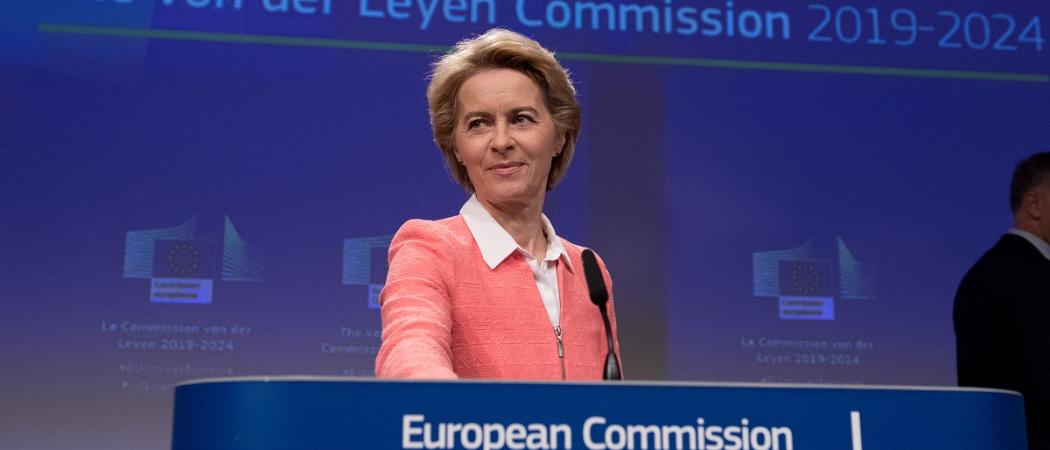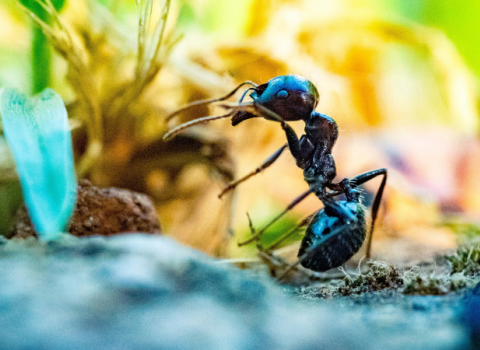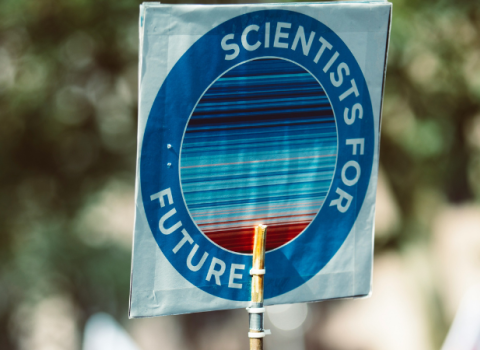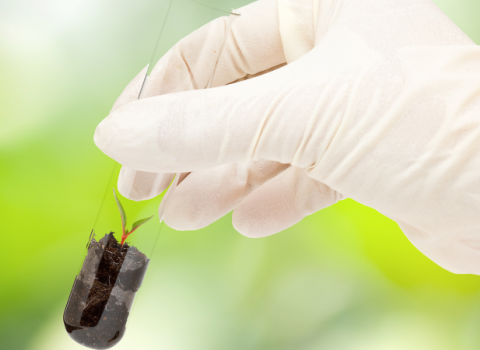A Science|Business analysis of all 26 mission letters sent to the nominees shows a number of commissioners will be working on innovation-related tasks

Ursula von der Leyen. Photo: EC - Audiovisual Service
After putting Bulgaria’s Mariya Gabriel in charge of education, innovation and research, the European Commission’s president elect Ursula von der Leyen has sprinkled a flurry of innovation-related tasks across the agendas of at least half a dozen new commissioners.
Judging by the 26 mission letters the commissioners in waiting received from Von der Leyen, about half a dozen of them will oversee the implementation of EU’s strategic goals in circular economy, climate and energy, health, artificial intelligence and industrial policy.
Von der Leyen wants her college of commissioners to come up with a new action plan for the circular economy. To help with this, France’s Sylvie Goulard, the new commissioner for internal market, and Lithuania’s Virginijus Sinkevičius, the new commissioner for environment and oceans, are expected to make sure any measures taken to boost the circular economy dovetail with the commission’s overall industrial strategy so that all of European industry contributes to achieving a climate neutral economy by 2050.
Sinkevičius will also lead the EU charge on plastic-free oceans and develop a new strategy for “a sustainable blue economy”, which should boost research and innovation in the maritime sector.
As executive vice-president for climate action, Dutchman Frans Timmermans is expected to oversee Goulard and Sinkevičius and coordinate circular economy policy. He will also be in charge of a new strategy called ‘Farm to Fork’, which is supposed to step up the application research and innovation in efforts to make food production sustainable.
The new health commissioner, Cypriot Stella Kyriakides will ensure the ‘Farm to Fork’ strategy feeds into EU’s broader objectives in circular economy, and she has the task of reducing dependency on pesticides in agriculture and boosting the take-up of low-risk alternatives. She should also come up with policies to “protect citizens from exposure to endocrine disruptors”.
European green deal
Alongside his circular economy duties, Timmermans is charged with making sure the EU’s climate-neutrality commitments for 2050 are met. In addition, von der Leyen expects him to push for a more ambitious target of lowering emissions by 50 per cent, instead of just 40 per cent, as currently agreed by member states.
As one of the keys to this, Timmermans is expected to coordinate a “just transition fund”, which would support regions that still rely on coal and fossil fuels and which will be most affected by the energy transition. Von der Leyen also expects Timmermans to propose Europe’s first “climate law” in his first 100 days in office.
Meanwhile, executive vice-president for the economy, Vladis Dombrovskis will coordinate the setting up of a “sustainable Europe investment plan”, which will aim to unlock funds totalling €1 trillion to mitigate climate change over the next ten years.
In addition, Dombrovskis will oversee the transformation of the European Investment Bank (EIB) into “Europe’s climate bank”. The commission wants half of the EIB’s money to be spent on climate investment by 2025.
The sustainable investment plan is to be executed by Italy’s Paolo Gentiloni, who will help revamp the InvestEU programme so it allocates more money to achieving EU targets on climate neutrality.
Health
In the health, Kyriakides should set up a plan for beating cancer, to help member states improve cancer prevention and care. According to Von der Leyen’s letter, the plan should be linked to the research mission on cancer in Horizon Europe.
In another new initiative, Kyriakides is to establish a European Health Data Space to support research on new preventive strategies treatments, drugs, medical devices and patient outcomes. Kyriakides will also work on the European One Health Action plan, to reach a global agreement on restricting the use of antibiotics, to slow down the spread of antimicrobial resistance.
Industry and SMEs
The executive vice president for the digital age, Margrethe Vestager is expected to work on a long-term strategy for Europe’s industrial sector, to “maximise the contribution of investment in research and innovation in supporting our policy objectives.”
Vestager, together with Dombrovskis, will set out a new strategy for small and medium enterprises (SMEs), which reduces regulatory burden for entrepreneurs and start-ups.
In the first 100 days of her mandate, Vestager is expected to come up with a new strategy for artificial intelligence and its ethical implications. The strategy should outline how the EU can use big data to develop new technologies and business models.
To achieve these goals, Vestager will be helped by Goulard, who is expected to appoint a special envoy for SMEs.
Defence and space
In addition to her duties in EU’s new industrial policy, Goulard will oversee the European Defence Fund.
Goulard will also oversee EU’s future Space Programme, covering the EU’s global and regional satellite navigation systems and the EU’s Earth observation programme. “You should foster a strong and innovative space industry, maintaining the EU's autonomous, reliable and cost-effective access to space,” Von der Leyen said in her nomination letter.
All 26 of Von der Leyen’s appointments have to be approved by MEPs in hearings to be held at the European Parliament in the coming weeks.





 A unique international forum for public research organisations and companies to connect their external engagement with strategic interests around their R&D system.
A unique international forum for public research organisations and companies to connect their external engagement with strategic interests around their R&D system.